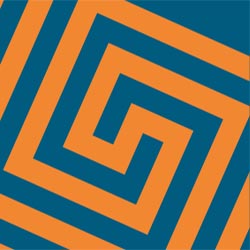A History of Western Society: Printed Page 833

PRIMARY SOURCE 25.2
Poetry in the Trenches
The trauma of the First World War generated an outburst of cultural creation, and each nation had its favored group of artists and writers. Among the most famous were Britain’s “trench poets,” including John McCrae, Wilfred Owen, and Siegfried Sassoon. All three served in France. McCrae, a medical officer, died of an infection contracted in a field hospital close to the front. Owen was killed in action one week before the end of the war. Sassoon survived, but was always haunted by the death of his close friend Owen and his horrific memories of the fighting.
John McCrae, “In Flanders Fields”
In Flanders fields the poppies blow
Between the crosses, row on row
That mark our place; and in the sky
The larks, still bravely singing, fly
Scarce heard amid the guns below.
We are the Dead. Short days ago
We lived, felt dawn, saw sunset glow,
Loved and were loved, and now we lie
In Flanders fields.
Take up our quarrel with the foe:
To you from failing hands we throw
The torch; be yours to hold it high.
If ye break faith with us who die
We shall not sleep, though poppies grow
In Flanders fields.
Wilfred Owen, “Dulce et Decorum Est”
Bent double, like old beggars under sacks,
Knock-kneed, coughing like hags, we cursed through sludge,
Till on the haunting flares we turned our backs
And towards our distant rest began to trudge.
Men marched asleep. Many had lost their boots,
But limped on, blood-shod. All went lame; all blind;
Drunk with fatigue; deaf even to the hoots
Of gas-shells dropping softly behind.
Gas! GAS! Quick, boys! — An ecstasy of fumbling
Fitting the clumsy helmets just in time,
But someone still was yelling out and stumbling
And flound’ring like a man in fire or lime. —
Dim through the misty panes and thick green light,
As under I green sea, I saw him drowning.
In all my dreams before my helpless sight
He plunges at me, guttering, choking, drowning.
If in some smothering dreams, you too could pace
Behind the wagon that we flung him in,
And watch the white eyes writhing in his face,
His hanging face, like a devil’s sick of sin,
If you could hear, at every jolt, the blood
Come gargling from the froth-corrupted lungs
Bitter as the cud
Of vile, incurable sores on innocent tongues, —
My friend, you would not tell with such high zest
To children ardent for some desperate glory,
The old Lie: Dulce et decorum est
Pro patria mori.*
Siegfried Sassoon, “Attack”
At dawn the ridge emerges massed and dun
In the wild purple of the glowering sun,
Smouldering through spouts of drifting smoke that shroud
The menacing scarred slope; and, one by one,
Tanks creep and topple forward to the wire.
The barrage roars and lifts. Then, clumsily bowed
With bombs and guns and shovels and battle-gear,
Men jostle and climb to meet the bristling fire.
Lines of grey, muttering faces, masked with fear,
They leave their trenches, going over the top,
While time ticks blank and busy on their wrists,
And hope, with furtive eyes and grappling fists,
Flounders in the mud. O Jesu, make it stop!
*It is sweet and fitting to die / For one’s country.
Sources: John McCrae, In Flanders Fields and Other Poems (New York: G. P. Putnam’s Sons/Knickerbocker Press, 1919), p. 15; Wilfred Owen, Poems by Wilfred Owen (New York: Viking Press, 1921), p. 15; Siegfried Sassoon, Counter-Attack and Other Poems (New York: E. P. Dutton, 1918), p. 18.
EVALUATE THE EVIDENCE
Question
Each of these poems was written during the war. How does each author bridge the traditional language and rhythm of poetry and the brutality of modern warfare?
Question
What messages do the poems have for the reader at home?
Question
What do these poems reveal about the effects of World War I on the fine arts and literature?